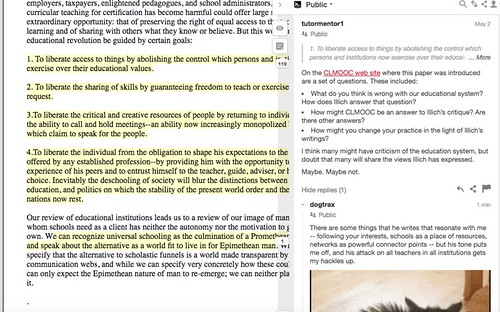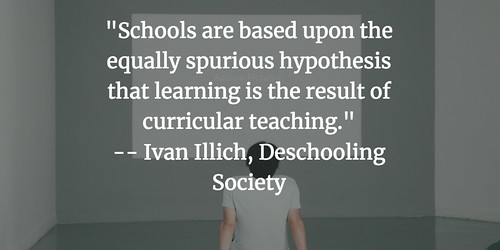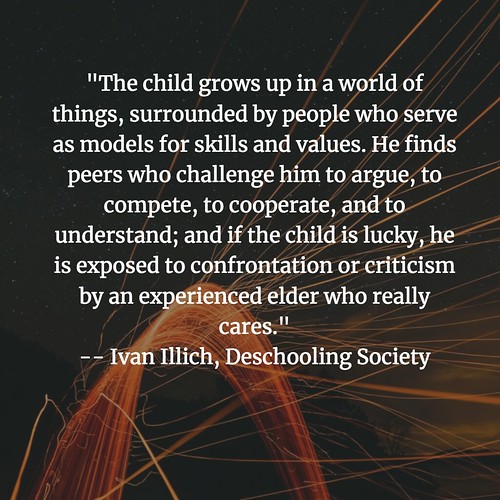There’s been some interesting conversations flowing in the margins of Ivan Illich’s Deschooling Society as part of a CLMOOC annotation activity, proposed by our friends Charlene and Sarah. We’re using the annotation tool, Hypothesis, to “mark up” Illich’s seminal critique from the 1970s of traditional schooling and the ways students are under/mis-served by the educational system in the United States. I have to admit, I’ve never really read Illich that deeply, so this has been an experience.
And I come away from reading this piece over a few weeks with some lingering reactions. The first is that I find myself in a defensive crouch as Illich attacks traditional schools from all different angles, arguing that teachers are ineffective, that schools only care for students as cogs in the business machine, that funding is misspent, that curriculum is merely a means to keep young people in line, the entire educational system is designed to slow down learning.
I won’t say some of his criticisms don’t have some merit, even today, decades later. But I felt as if he were attacking me personally, as someone who has dedicated my career to teaching and working with young people. It may be that I am too sensitive and ready to shout back (which I did in the margins of Illich’s text).

Still, Illich has some interesting points that do seem to coincide with the principles of Connected Learning — particularly around the concepts of student choice, peers as powerful motivators, project-based learning (which is what Charlene to first suggest this text for annotation, I believe), finding mentors in the field to help guide understanding, and building networks through technology to expand access to materials and information.
Remember (and I remind myself), he wrote all this during the time of Mainframe Computers and microfiche files. He was envisioning an expanding educational system that allowed students to think and learn beyond the walls of the classroom, to follow their interests. He talks about poverty and urban schools failing their students. Those are insights to wonder at with appreciation (too bad I find his writing tone off-putting and snobby in its own way).
I’ve enjoyed reading and interacting with the other readers of the text, and marvel that there are more than 130 annotations (so far) about Illich’s views, and that many of the annotations have responses and discussions unfolding. It’s pretty cool.
And open. You can add your ideas, too, and reflect along with us.
I plan to head back in and make the rounds of comments, and think about how to keep the threads turning on our thinking. I hope to see you there.
Peace (in the margins),
Kevin


